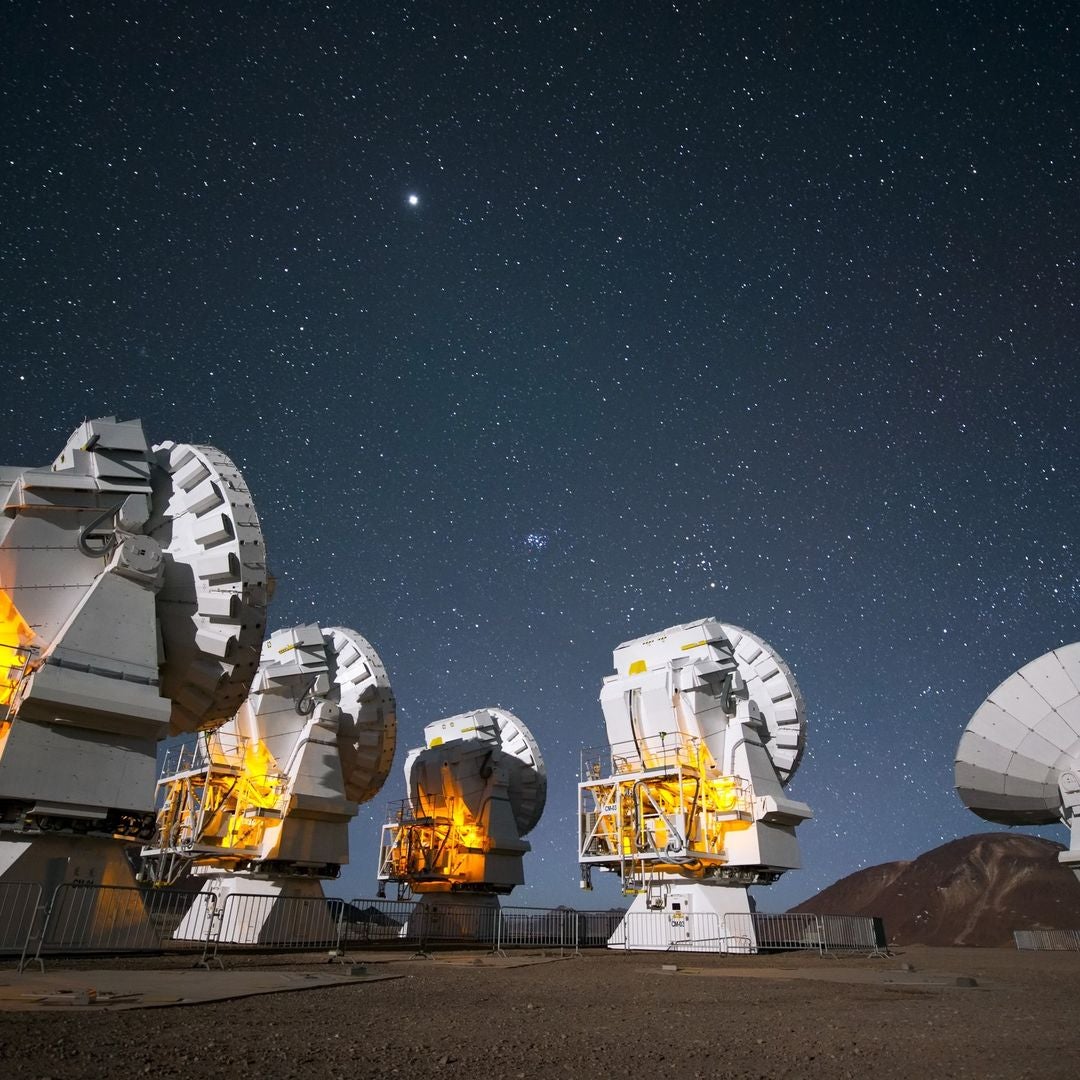Alma radio telescope in Chile taken down by cyber attack
The Atacama Large Millimeter/submillimeter Array Observatory will be offline for an indeterminate amount of time as workers try to recover from a 29 October cyber attack

Your support helps us to tell the story
From reproductive rights to climate change to Big Tech, The Independent is on the ground when the story is developing. Whether it's investigating the financials of Elon Musk's pro-Trump PAC or producing our latest documentary, 'The A Word', which shines a light on the American women fighting for reproductive rights, we know how important it is to parse out the facts from the messaging.
At such a critical moment in US history, we need reporters on the ground. Your donation allows us to keep sending journalists to speak to both sides of the story.
The Independent is trusted by Americans across the entire political spectrum. And unlike many other quality news outlets, we choose not to lock Americans out of our reporting and analysis with paywalls. We believe quality journalism should be available to everyone, paid for by those who can afford it.
Your support makes all the difference.One of the world’s most advanced radio telescopes is offline following a cyber attack and it’s not clear when scientific operations can begin again.
The Atacama Large Millimeter/submillimeter Array (Alma) Observatory in Chile was struck by a cyber attack on 29 October, the Observatory said in a tweet on Wednesday. The attack hobbled the observatory’s computer systems and took both the observatory’s public website and its radio telescope antennas offline.
“Given the nature of the episode, it is not yet possible to estimate a date for a return to regular activities,” the observatory added in a tweet.
The attack did not damage Alma’s 66 radio antennas arrayed across the northern Chilean desert, according to the observatory’s post. Alma is an interferometer, a telescope made up of an array of smaller telescopes working together to function as a much larger instrument. Scientific data collected by Alma is also secure, according to the observatory.
Alma is a partnership between the European Southern Observatory, the US National Science Foundation’s National Radio Astronomy Observatory, and the National Astronomical Observatory of Japan.
Since beginning full-time science operations in 2013, Alma has revealed planets forming out of stardust, observed violent solar flares on nearby stars, and provided new insights into the powerful blasts of cosmic radiation known as gamma ray bursts. Alma was also part of the Event Horizon Telescope project, which took the first direct image of a black hole in 2019.
Join our commenting forum
Join thought-provoking conversations, follow other Independent readers and see their replies
Comments